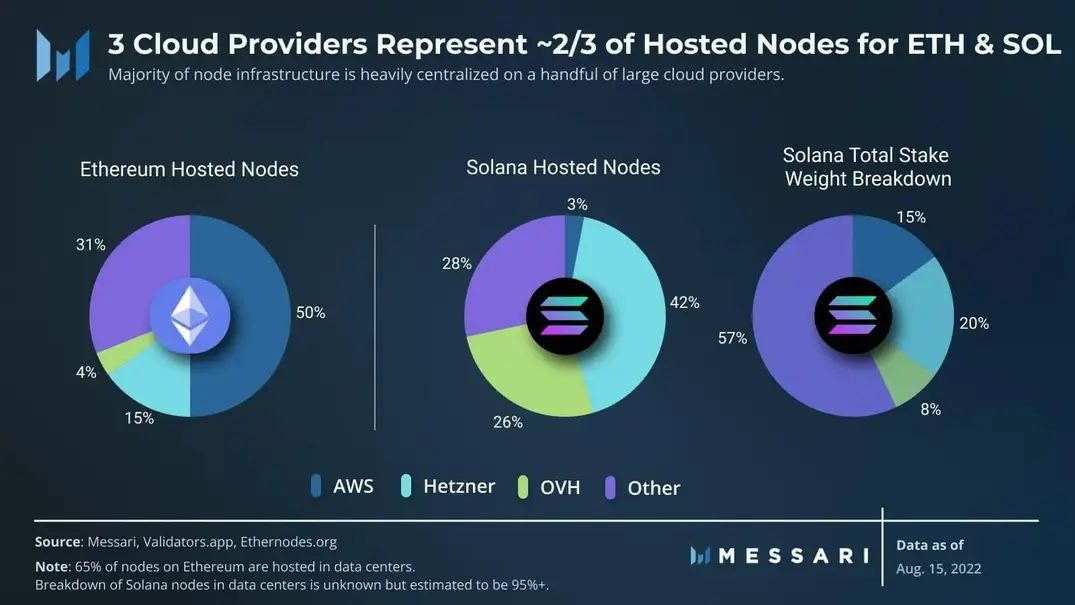
Many large crypto projects assure users that they are decentralized. Maybe it’s true. But, it’s worth remembering about where the nodes are.
What is node? That’s a good starting point. Node is a term used in IT to refer to a single device that is part of a network. In crypto, the term “node” is used to refer to a computer that performs validation and storage of blockchain transactions as part of a large network.
Buying computers and servers to create your own validator nodes network is very expensive. So, it’s easier to just rent someone else’s servers. It is the rental of cloud servers that many crypto projects resort to. This is where the decentralization of a project comes under threat.
Let’s turn to statistics. If you look at the Messari data about who the nodes providers for Ethereum and Solana are, it becomes clear that these projects are not truly decentralized. More than half of the nodes providers of these projects are three large cloud providers.
Yes, it is profitable and convenient to rent servers from cloud providers. But if the share of such servers becomes larger than the share of independent providers, then this becomes a threat to decentralization. After all, if for example, the state sends a request to Amazon to shutdown 43% of Ethereum’s nodes that are hosted on Amazon Web Services, then what of the consequence? Ethereum will either make a deal or lose 43% of its nodes. The same thing can happen with Hetzner, which provides another 15% of Ethereum nodes. In this regard, Solana’s situation is similar. More than half of Solana’s nodes are distributed among three large cloud providers.
Projects that overuse the services of cloud providers endanger their decentralization. Messari in their report on this topic explains how this problem can be resolved.
To solve this problem, decentralized cloud providers are being created. How does it work? The company is looking for suppliers who can and want to provide their computing power to host nodes on them. All providers are gathered into a single network of providers. Should one of the providers decide to terminate their contract, then it will immediately be replaced by another.
Yes, instant termination of a contract with a large cloud provider is a very unlikely event. But, as history shows, unlikely events can happen. We continue to observe.
